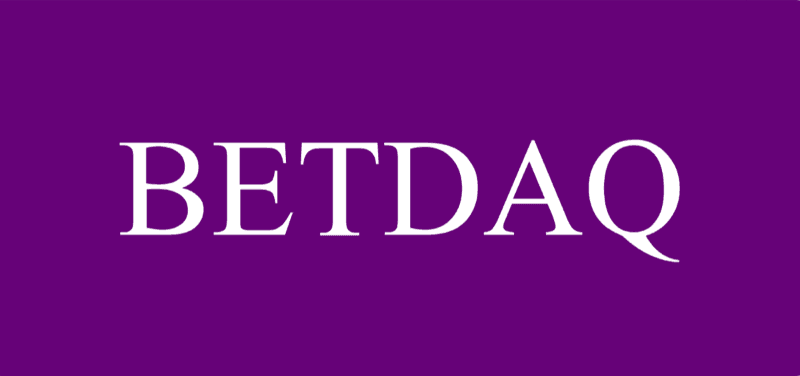
15 title matches, 32 goals, six champions – that’s a summary of the Unofficial Football World Championships in 2014. In contrast to 2013, this year the UFWC was mostly dominated by some of international football’s biggest names, as the unofficial title was contested at the official World Cup, culminating in the creation of an ‘undisputed’ football world champion. But that undisputed championship didn’t last long, as the official and unofficial titles were separated by a resurgent football nation. And there were plenty of other surprises along the way.
The year began with Uruguay as Unofficial Football World Champions. Austria were the first challengers, and they led for 50 minutes in Klagenfurt, but a scrappy equaliser from Alvaro Pereira allowed Uruguay to retain the title. Northern Ireland provided another stiff challenge, but Christian Stuani scored a winning goal for Uruguay. Stuani scored again in the next match, a World Cup warm-up against Slovenia. Edinson Cavani also scored in a 2-0 victory. It was Uruguay’s 20th UFWC title match win.
Brazil 2014 was the 12th World Cup Finals at which the UFWC title was contested. Uruguay went into the tournament as UFWC champions, but their reign came to an end in their first group stage match. It was Costa Rica who shocked Uruguay, and much of the watching world, with an excellent 3-1 win, inspired by Arsenal youngster Joel Campbell. This was actually Costa Rica’s sixth UFWC title match victory, although their first since 1963.
There were more heroics to come from Costa Rica. First they beat the once-mighty Italy courtesy of a goal from captain Bryan Ruiz. Then they extended their run as UFWC champions with a goalless draw against England.
Into the World Cup last 16, Costa Rica faced Greece. Bryan Ruiz scored again, but Greek centre-half Sokratis Papastathopoulos grabbed a 91st minute equaliser. Costa Rica played the 30 minutes of extra time with only ten men, Oscar Duarte having been sent off, but somehow managed to keep the Greeks at bay. Goalkeeper Keylor Navas ended up being the hero for Los Ticos, saving brilliantly at the end of extra time, them saving a crucial penalty as the match was decided by a shoot-out. Michael Umana converted the final penalty for Costa Rica, who won the shoot-out 5-3.
The Costa Ricans deservedly took their place in the World Cup Quarter Finals, but faced formidable opposition in the shape of the Netherlands. The Dutch edged things over 90 minutes, and both sides had chances to win the game in a brilliantly entertaining period of extra-time, but there were no goals. Just as the match was about to go to penalties, Dutch coach Louis van Gaal substituted goalkeeper Jasper Cillessen, replacing him with Tim Krul. The substitution turned out to be a master-stroke, as Krul saved two of Costa Rica’s kicks, giving the Netherlands a 4-3 win on penalties.
So the Netherlands took the UFWC title into the World Cup Semi Final, and for the third successive time a UFWC title match was decided on penalties. The opponents were Argentina, and the hero was Argentine goalkeeper Sergio Romero. After the goalless game went to penalties, Romero saved shoot-out kicks from Ron Vlaar and Wesley Sneijder to give his side victory. Argentina were the new Unofficial Football World Champions.
Then came the World Cup Final, with UFWC champions Argentina facing challengers Germany. Germany’s path to this final had seen them defeat Portugal and the USA and draw with Ghana during the group stage, then beat Algeria and France, before humiliating hosts Brazil 7-1 in the semi final. This was the fourth successive UFWC title match to go to extra time, but unlike the previous three it didn’t go to penalties. A wonderful goal by wunderkind Mario Goetze in the 113th minute secured Germany their fourth World Cup win. The Germans also took the UFWC title and became Unofficial Football World Champions. Having unified the FIFA and UFWC titles, Germany could also claim to be the ‘undisputed’ champions.
Less than two months after losing the World Cup Final to Germany, Argentina gained some form of revenge with an impressive victory over the official world champions. Although Germany will retain the FIFA title for the next four years, they were swiftly deprived of the UFWC title. Manchester United’s Angel Di Maria was the star man, creating three and scoring another in a rampant display. Germany attempted a comeback, but looked a shadow of the team that won the World Cup. The final score was 4-2 to Argentina, who regained the UFWC title.
The next challengers were Brazil, who had failed in their attempt to become official world champions, but made a more successful claim to be unofficial champions. This so-called friendly match was the latest Superclásico de las Américas derby between Argentina and Brazil, and was one played more than 10,000 miles away from South America in Beijing. This was a much more confident Brazil side than the one that flopped as host nation at the World Cup. Led by the brilliance of Neymar, and with two goals from new striker Diego Tardelli, the Seleção won 2-0 and Brazil were the new UFWC champions.
A brilliant four-goal performance from Neymar helped Brazil move another step away from their World Cup embarrassment as they retained the UFWC title with a thoroughly impressive win over Japan. The best efforts of the challengers were simply no match for a fluid, fast-breaking Brazilian side, who won 4-0.
Brazil then cruised past challengers Turkey with another fantastic post-World Cup performance of the type that was sorely lacking during the official tournament. Brazil won 4-0 again. Turkish fans sang the name of two-goal man of the match Neymar, and booed and whistled their own team, such was the gulf in class on show.
The final title match of 2014 saw Brazil secure their sixth straight post-World Cup victory, and their fourth straight UFWC title match win, to remain Unofficial Football World Champions. But this wasn’t as easy as previous wins. The final challengers of 2014 – Austria – had also been the first challengers of the year. Austria did score a goal – the first Brazil had conceded since the World Cup. But the 2-1 result meant Brazil ended 2014 as UFWC champions, an achievement that seemed highly unlikely following a wretched campaign as World Cup hosts. The turnaround achieved by Dunga and his players has been remarkable, and they thoroughly deserve to end the year as Unofficial Football World Champions.
Below is a full list of all 15 2014 UFWC title matches. You can click on the links for match details.
05/03/14 AUSTRIA 1-1 URUGUAY FR Klagenfurt
30/05/14 URUGUAY 1-0 NORTHERN IRELAND FR Montevideo
04/06/14 URUGUAY 2-0 SLOVENIA FR Montevideo
14/06/14 URUGUAY 1-3 COSTA RICA WC Fortaleza, Brazil
20/06/14 ITALY 0-1 COSTA RICA WC Recife, Brazil
24/06/14 ENGLAND 0-0 COSTA RICA WC Belo Horizonte, Brazil
29/06/14 GREECE 1-1 COSTA RICA* WC Recife, Brazil
05/07/14 NETHERLANDS* 0-0 COSTA RICA WC Salvador, Brazil
09/07/14 NETHERLANDS 0-0 ARGENTINA* WC Sao Paulo, Brazil
13/07/14 GERMANY 1-0 ARGENTINA, WC Rio de Janeiro, Brazil
03/09/14 GERMANY 2-4 ARGENTINA, FR Düsseldorf
11/10/14 BRAZIL 2-0 ARGENTINA, FR Beijing, China
14/10/14 BRAZIL 4-0 JAPAN, FR, Singapore
12/11/14 TURKEY 0-4 BRAZIL, FR, Istanbul
18/11/14 AUSTRIA 1-2 BRAZIL, FR, Vienna
As it stands, Brazil have won 33 UFWC title matches and are 6th in the all-time rankings. Argentina and the Netherlands are 3rd and 4th respectively, and Germany are 7th. Uruguay’s run as UFWC champions lifted them to 11th place, while Costa Rica are in 22nd place. The UFWC Ranking Table, based on number of title matches won, looks like this at the end of 2014:
1 ![]() SCOTLAND 86
SCOTLAND 86
2 ![]() ENGLAND 73
ENGLAND 73
3 ![]() ARGENTINA 59
ARGENTINA 59
4 ![]() NETHERLANDS 50
NETHERLANDS 50
5 ![]() RUSSIA 41
RUSSIA 41
6 ![]() BRAZIL 33
BRAZIL 33
7 ![]() GERMANY 28
GERMANY 28
7 ![]() SWEDEN 28
SWEDEN 28
9 ![]() ITALY 27
ITALY 27
10 ![]() FRANCE 25
FRANCE 25
11 URUGUAY 20
22 COSTA RICA 8
The next fixtured UFWC title match sees Brazil play France in a friendly in Paris on 26 March 2015. Brazil will also take part in the 2015 Copa America tournament in June, where they have been drawn with Colombia, Peru and Venezuela. We’ll have full coverage of all UFWC title matches right here.
You can keep up to date with all things UFWC via Twitter or Facebook.




